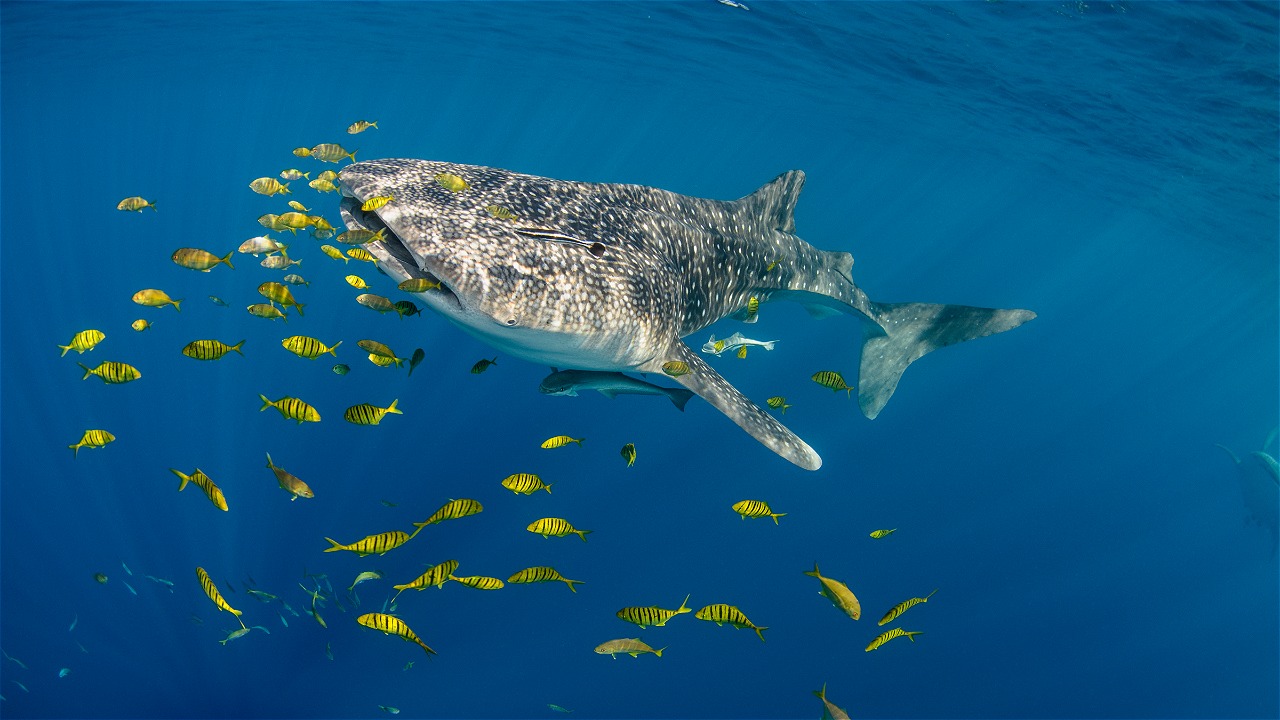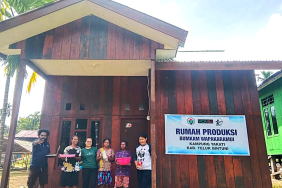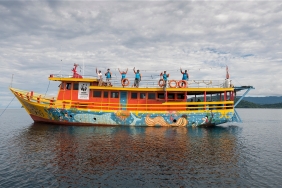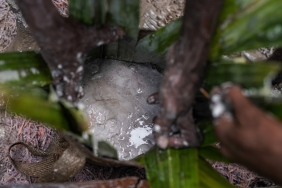MANAGING NATURAL RESOURCES USING LOCAL WISDOM OF TNTC COASTAL COMMUNITIES
By: Feronika Manohas
One of the slogans that Papuans often put forward and become a role model in developing this area is "Being a master in his own land". This slogan provides a deep understanding, which invites the Papuan people to manage their own region and natural resources without any intervention from other parties. However, sometimes this slogan is misinterpreted by the surrounding community, which ends up with people just standing by without doing anything and asking for "rations" or compensation from natural resource utilization activities that are leased to other parties.
It is certainly contradictory, through one of WWF-Indonesia's missions to invite people to live in harmony with nature, the Outreach team uses the slogan as an invitation to manage their own natural resources sustainably by not renting them to other parties.
Sustainable Local Wisdom
Basically, people who live on the coast of Teluk Cenderawasih National Park (TNTC) have their own local wisdom in utilizing natural resources, be it from the fishing gear used, fishing time, fishing method to fishing location.
There are many local wisdoms applied by TNTC coastal communities, among others:
- Catching fish using traditional tools (fishing rods, fish traps, balobe etc.)
- Fishing time that is not every day
- Following natural signs in utilization (moon, stars and wind direction)
- Feels sufficient if all daily needs have been met
- Prohibiting the taking of a biota or tree within a certain time (currently known as sasi)
- Not catching too much (taboo if there are dead fish caught to be thrown into the sea)
- Take the results with the size that is ready for harvest (generally large size)
- Do not tell others the location of the catch (this is prevented so that there are not many people who utilize natural resources in the same location)
- Sharing their catches with their relatives if they get a large enough catch.
- There are some locations that are sacred (no entry) this can provide an opportunity for some biota to breed in it.
- Beliefs about ancestors who came from one of the biota in the sea or in the forest (such as Duyung which is believed to be the ancestor of the goni community so they do not utilize the biota).
This local wisdom has been passed down from generation to generation. However, with the development of time, this local wisdom has been eroded. Moreover, when economic needs increase, the needs of the community become more varied. As a result, resource utilization increases and often violates existing regulations. Hopefully, the efforts made by local communities to restore their natural life can be carried out into the future.





